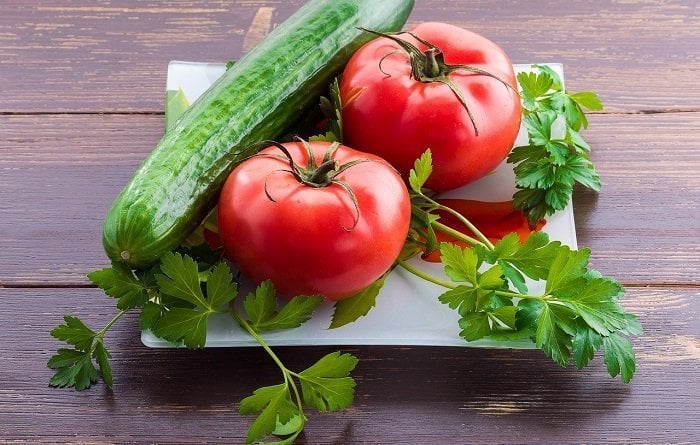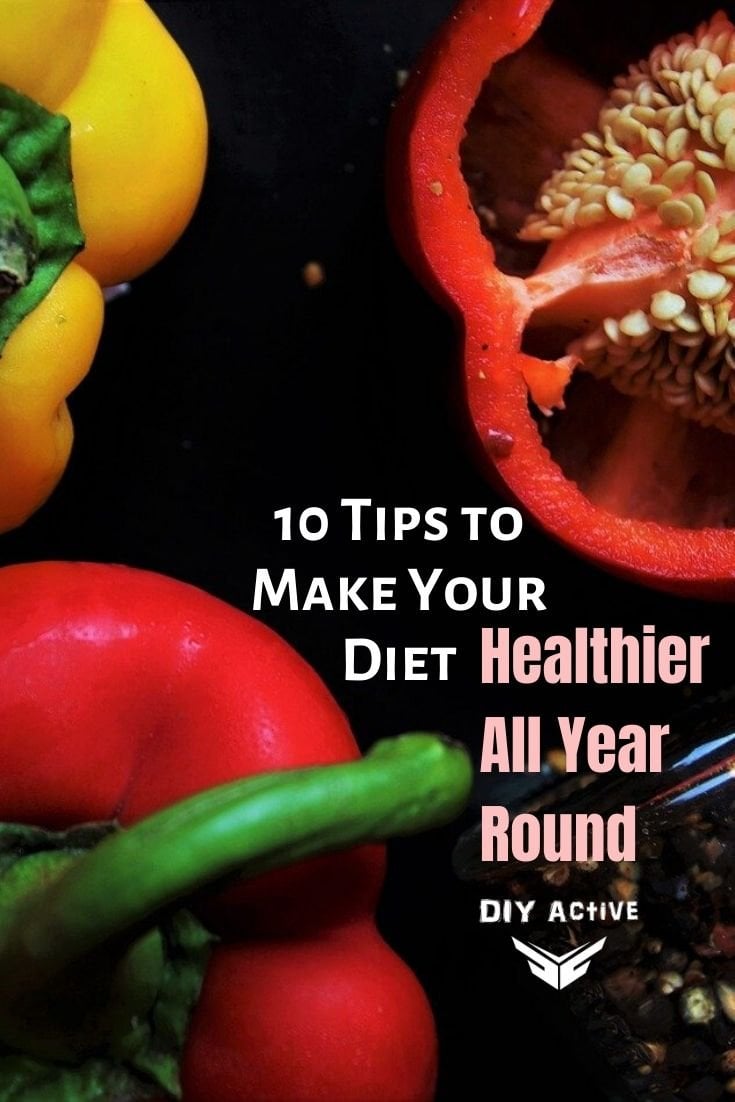
Make Your Diet Healthier All Year Round
Starting and maintaining a diet is one of the hardest things to do. A balanced diet is a must if you want to keep yourself fit and healthy. After all, it has been proven to help prevent and fight chronic diseases and keep us in shape.
How to make your diet healthier
2019 is coming to an end and we’ll be welcoming 2020 in less than a month. You might be following a diet already, but if a healthy diet is not yet part of your New Year’s resolutions, now’s the time to add it.
There are tons of diets and healthy meal plans available out there for you to choose from. It can be overwhelming to figure out which one to take.
Know that it doesn’t have to be complicated! In fact, there are many ways that you can follow a diet that can work for you with a few adjustments here and there.
How you can make your diet healthier all year round
1. Eat what’s in season
What’s your favorite food? Do you know why it became your favorite?
One of the reasons is because it stimulated your palate. Have you noticed that a lot of diet meals are bland? Yes? This is why it’s hard to stick to a diet plan because you want something delicious and you are served something tasteless.
Seasonal food is better in many ways. But when you opt for seasonal food, you’ll find that these taste better. Aside from that, these foods pack more nutrients, has more flavor, fresher, and not to mention, are cheaper.
When your palate is stimulated with flavors, it’s easier to continue a certain diet.
2. Leave the sugar off your drinks
 Of course, we know too much soda can lead to numerous health complications, and yet it’s still so hard to shy away from it. Say no to soda or packaged juice the next time you’re in the grocery.
Of course, we know too much soda can lead to numerous health complications, and yet it’s still so hard to shy away from it. Say no to soda or packaged juice the next time you’re in the grocery.
Instead, if you want some flavor in your drinks, there are alternatives around that are definitely healthier. Opt for fruit-infused water or sugar-free drinks. You will not only reduce sugar but also calories.
3. Eat nutrient-dense food
Have you ever found yourself counting calories on the label of every food item that you put in your grocery cart? Sometimes, we’re too focused on getting fewer calories that we end up not getting enough nutrients that we need for the day.
There are many nutrient-dense foods available in the market but sometimes the way we cook also affects the quality of the food. The right cooking method can also help keep the much-needed nutrients intact.
Try steaming instead of boiling. Other methods are baking or roasting. If you want fried food, use an air fryer. Cooking in an air fryer or instant pot is also a great way to preserve vitamins and minerals.
4. Choose whole grain
Whole grain packs in a lot of fiber, vitamins, and minerals. So if you’re looking into baking or grabbing bread from the supermarket, opt for this healthier version.
Studies have shown that whole grain is beneficial in lowering the risks of diabetes, heart diseases, and cancer.
5. Keep healthy food within reach
We tend to settle with what’s available. Often, what’s fast and easy to whip up isn’t healthy.
They’re often heavily processed and can be as easily prepared as dialing a number or popping in the microwave. Get fruits, yogurt, whole wheat bread, or veggie sticks.
Fill your pantry with healthy food. Keep it in your purse or your office drawer as well. You’ll never know when hunger will strike you so you better be ready.
6. Eggs for breakfast
Eggs have become extremely famous when it comes to health benefits these days. It’s very popular among those doing low carb diets because aside from having low carbohydrate content, it’s also low in calories but high in protein.
Eggs are great to eat during breakfast because it makes you feel fuller which, in turn, leads you to eat less in your next meals.
7. Add more fish to your diet
Think seafood. Fatty seafood, that is. Omega-3 is vital to heart health and brain function. Vitamin D is important for bone health and the immune system.
Both are found in fatty seafood such as tuna, salmon, herring, and mackerel – just to name a few!
8. Stock up on protein
Protein is a macronutrient that is essential to muscle-building and has been proven to help in weight loss, lowering blood pressure, and fighting diabetes.
It’s commonly found in animal products such as meat and dairy, but there are other sources too that are equally healthy like nuts (almonds, pistachios, and cashews), oats, broccoli, and legumes. There are a lot of options to choose from, especially if you’re not a meat-eater.
9. Drink more water
People still say, “Drink at least eight glasses of water a day”. This never grows old. Water helps in weight loss and maintenance and in flushing out wastes from our bodies.
Drinking water before mealtime can help reduce appetite because it makes you feel full. Also, since it doesn’t contain sugar, water lessens your calorie intake as well.
10. Love coffee? Make it black
Coffee was not very popular when it comes to diets until the dawn of intermittent fasting. It’s a major source of antioxidants and is known to lower risks of diabetes, liver diseases, and helps with brain health.
Commercial coffee contains a handful of other ingredients that do not necessarily contribute to good health, so instead, if you’re on a diet, it’s recommended that you drink your coffee black.
Wrap-Up
You don’t have to bite into every diet out there. It’s not about giving up your favorite food or changing your entire meal plan radically. A good diet is generally something that can work for you and your health goals.
It doesn’t have to be complicated and is mostly a matter of replacing and adjusting your everyday food items into healthier options. Say, from white rice to brown rice; from refined sugar to coco sugar; from whole to skim milk.
It’s the little changes that make a big (and better) difference in our diets.


